Reply To:
Name - Reply Comment
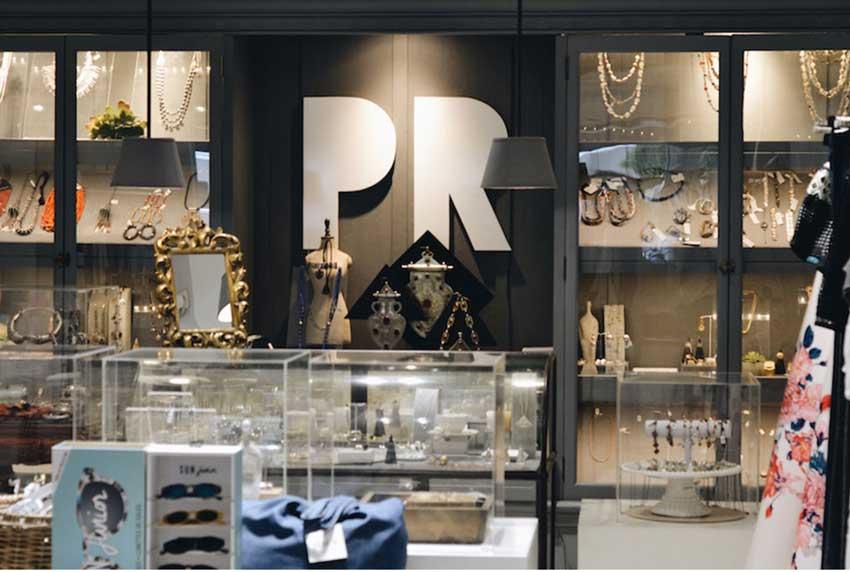
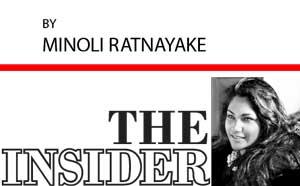 Disposability is no longer chic. People who took pride in only wearing things once are now looked down on as being completely ignorant and utterly wasteful. There isn’t a Royal or celebrity of late who hasn’t been spotted proudly re-wearing their clothes to engagements, Kate Middleton’s wardrobe is a masterclass in this, she also works with design houses to alter some gowns to give them a modern uptake so she can enjoy them for longer.
Disposability is no longer chic. People who took pride in only wearing things once are now looked down on as being completely ignorant and utterly wasteful. There isn’t a Royal or celebrity of late who hasn’t been spotted proudly re-wearing their clothes to engagements, Kate Middleton’s wardrobe is a masterclass in this, she also works with design houses to alter some gowns to give them a modern uptake so she can enjoy them for longer.
Fashionistas and a host of big designer brands have thankfully started exploring the joys of upcycling. What is upcycling I hear you ask. Upcycling is the act of taking something no longer in use and giving it a second life and new function. By doing this, the finished product generally becomes more practical, valuable and beautiful than what it previously was. Upcycling has been a buzzword in the industry for many months now. Also known as creative reuse, this trend is greener and more ethical than second-hand clothing. Just like history, fashion eternally repeats itself, but designers and top brands are continually on the lookout for sustainable solutions to reduce their collections’ impact on the planet, with fashion being the second largest polluter after oil.
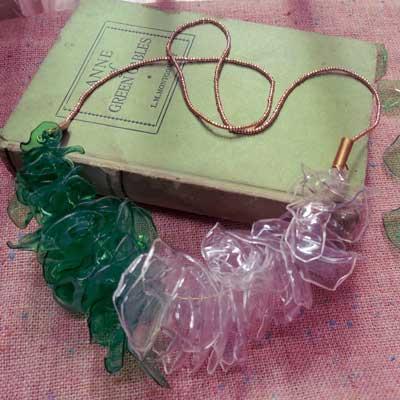
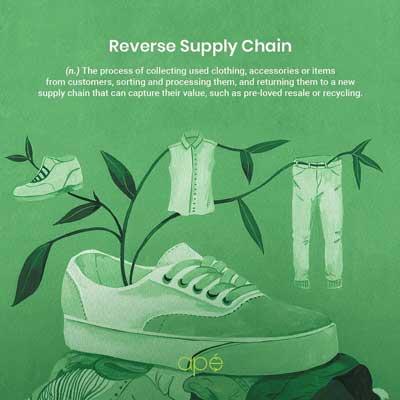
Upcycling offers added value to garment waste and unused items and transforms them into high-quality pieces. This technique goes beyond traditional recycling because it entails a virtuous circle that allows the fashion industry to generate less waste, to produce less and therefore to limit its impact on the environment. Upcycling is not the same as recycling, recycling takes consumer materials, mostly plastic, paper, metal and glass, and breaks them down so their base materials can be remade into a new consumer product which is something that innovative local fashion brand G-Flock does exceptionally well.
When you upcycle an item, you aren’t breaking down the materials. You may be refashioning it, but it’s still made of the same materials as when you started. Also, the upcycled item is typically better or the same quality as the original.
After years of buying and accumulating and wearing once and relegating to the back of the wardrobe, consumers are beginning, finally, to publicly embrace the old. Upcycling is reaching far and wide in the industry and consumer conscience. It may be the most important shift in the fashion system to come out of the pandemic: the one real product to emerge from all the buzz in the global fashion industry about change and sustainability and value systems.
Gucci announced a partnership with the RealReal, the resale site, in October 2020, for a Gucci-specific resale store on the platform, just as Stella McCartney and Burberry did before it. Beloved Italian powerhouse Miu Miu introduced Upcycled by Miu Miu: a limited collection of vintage dresses that have been tweaked, refashioned and otherwise jazzed up for a contemporary customer. Fashion brands have finally realised that they need to put the spotlight on wonderful things that last and not disposable fashion. Such a development is the inverse of the former conventional wisdom, which held that if you didn’t bombard people with a constant stream of new products, you risked losing their attention, and wallet share.
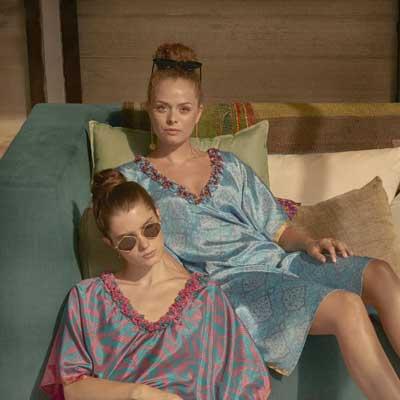 That was, it turned out, a short-term way of thinking that preyed on insecurity and was manipulative. It may have boosted sales, but it also led to not only an excess of stuff but also an erosion of the value system. In this case more really was less. After all, if the company that made a garment didn’t think it was worth hanging on to for more than a few weeks, why should the person who buys it? Once that confidence and understanding is lost, it is unclear how it ever comes back. Upcycling may be the answer.
That was, it turned out, a short-term way of thinking that preyed on insecurity and was manipulative. It may have boosted sales, but it also led to not only an excess of stuff but also an erosion of the value system. In this case more really was less. After all, if the company that made a garment didn’t think it was worth hanging on to for more than a few weeks, why should the person who buys it? Once that confidence and understanding is lost, it is unclear how it ever comes back. Upcycling may be the answer.
Even though fashion was increasingly grappling with the environmental impact of materials at the start of a product’s life, there wasn’t as much focus on its end of life, or second life. So, what changed? First, the fact that, early in the pandemic when countries were in lockdown, many mills were not working, so designers had to turn to fabric left over from previous collections to create products. This helped break the “old” barriers. Traditionally, fashion had been “afraid of anything last season,” even though consumers have positive associations with the word “sustainability.” Add to this the realisation that consumers themselves were, changing their behaviour and starting to see more value in their items. They’re changing because of pandemic-induced economic factors and the understanding, no longer debated, that the responsibility to address the landfill problem lies not just with fashion producers, but also shoppers. All of which has helped bolster the much-heralded growth of the resale market, with smart Sri Lankan start-ups on Facebook and Instagram that sell pre-loved Designer and branded items.
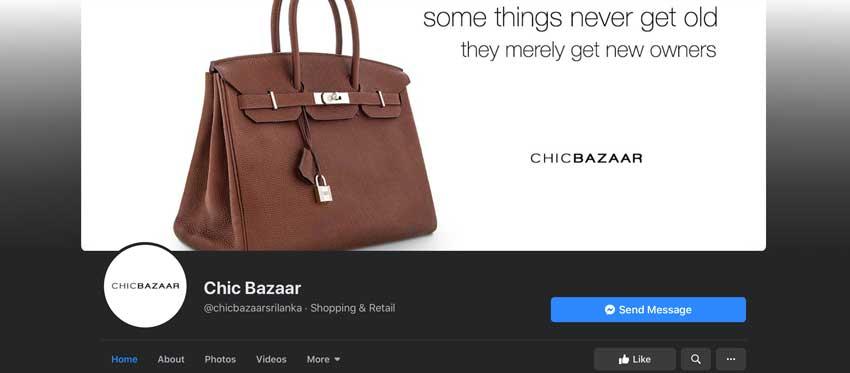
Apé is an initiative to raise awareness and enable sustainable, circular consumption via providing a platform to extend the lifecycle of preloved items. Thereby, helping ourselves, each other, and our planet by moving towards more conscious consumption.
Chic Bazaar, Prezziosa Glam and Pre-Loved Sari’s are others that are worth checking out.
PR, on Horton Place, is one of Colombo’s finest independent fashion stores where you’ll find handpicked, cleverly curated collections and friendly advice. This Colombo 07 mecca is crammed with the most desirable labels and stays ahead of the curve when it comes to the latest brands and trends. In addition to working with Apé for their client’s high quality resale pieces, they promote sustainable and upcycling brands like Rice and Carry, which started in 2012, with the idea to upcycle old rice bags, to tackle two issues: 1) growing amount of plastic waste and 2) lack of job opportunities for women from rural areas. Today, they offer a wide range of bags and accessories, all made with waste materials found on Sri Lanka's coastline. Since 2019, they are a guaranteed member of the World Fair Trade Organisation (WFTO).
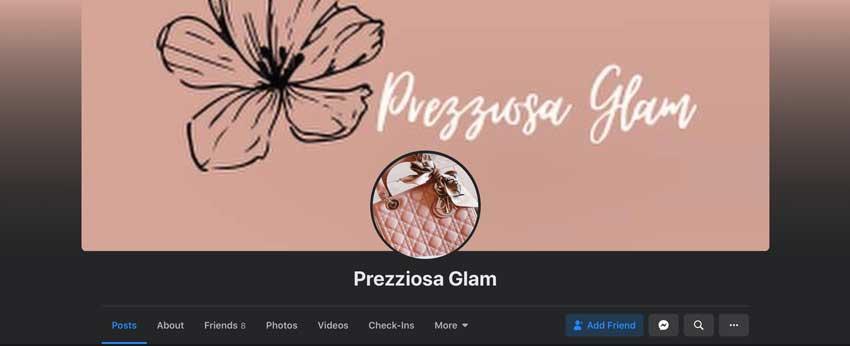
Vogue fave - I was a Sari, an established player in the circular economy since 2013. They source their raw materials in the colorful markets of Mumbai. Used saris and dead stocks become vibrant products that are sold worldwide.
Jewellery brand ALKE that works with upcycled, manipulated materials to create limited edition pieces.
The result of our pandemic purchasing habits and a powerful combination of other forces is thankfully pushing fashion and how we think about clothes, in a new and sustainable direction.